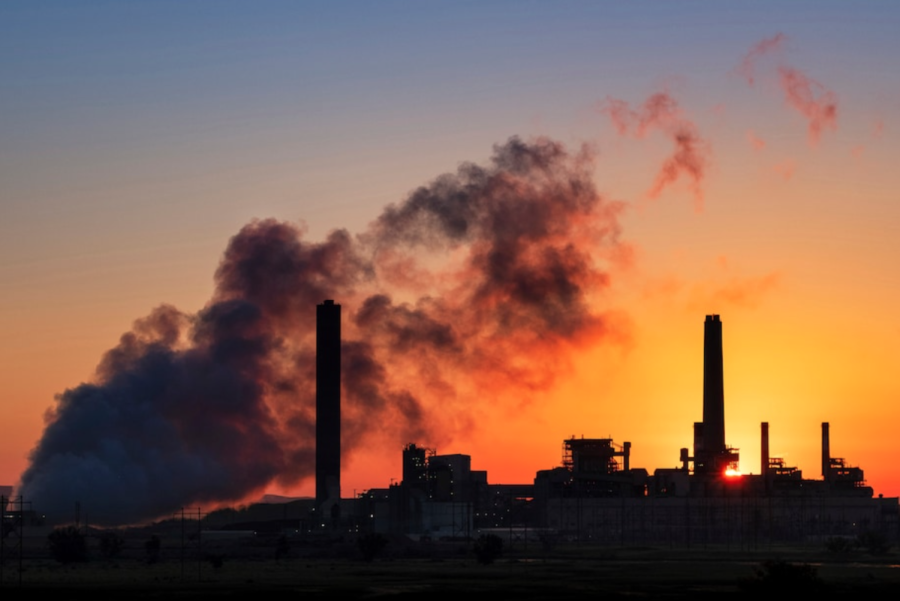After the clean power plan is denied, what is the future of our environment?
The Supreme Court’s gutting of the EPA raises questions about the future of environmentalism
September 28, 2022
In a continuation of the concerning trend of ruling against public opinion, on June 30, the Supreme Court concluded its ruling on the case of West Virginia v. Environmental Protection Agency (EPA). In a 6-3 decision, they determined that the Clean Power Plan cannot enforce “generation shifting” methods of reducing power plants’ carbon emissions.
The majority opinion concluded that, while the EPA can regulate the implementation of carbon emission-reducing technology, the agency’s more forward-looking strategies at converting existing power plants into the business of alternative energy do not hold up in the context of the Constitution. The plaintiffs’ argument reasons that the executive branch cannot bestow such broad power to the EPA — instead, Congress must move a finger or two to support the Clean Power Plan. Unlikely, I know.
Our country, once again, is receiving word from the majority opinion of the Supreme Court — from that brooding ivory tower it sits upon — that the Constitution said, “no”.
The part I find most troubling is that since the Supreme Court expanded gun rights and limited abortion rights, this latest ruling feels the least cataclysmic. Am I simply growing numb to the disappointment? Probably. But I also find myself in partial agreement with the plaintiff’s argument: Congress should take action by supporting environmental agencies and their plans to fight climate change.
The unfortunate reality is that the often gridlocked and severely polarized Breakfast Club we call Congress does not often budge, which is made apparent by their reaction to the United States having the 13th-highest carbon dioxide emissions per capita in 2020, nor to our country having the second highest overall emissions in that same year.
The National Resources Defense Council, a non-profit group that advocates for combating climate change, reports that the Clean Power Plan would have put our country on pace to slim down the carbon emissions of power plants by 32% by 2030. Although these statistics were calculated by optimistic scientists, such a leap in the right direction would have been phenomenal for addressing climate change, one of the most pressing issues of our time.
Now that this once hypothetical promise of progress has been slashed by the majority opinion of West Virginia v. EPA, I can only hope that Congress will come away from this ruling with the initiative to spur a similar plan into action. I’m clinging onto the “optimism” I mentioned earlier.
Congress taking up these reigns is truly the only way to make sure arguments — such as those of the plaintiffs in this case — do not again slow the fight against climate change.
Here is that argument from West Virginia Attorney General Patrick Morrissey, speaking in support of the majority opinion:
“Once again, this is not a case about climate change … it’s about when a federal agency acts, it’s comporting to the limits that Congress prescribes for them,” Morrissey said on PBS NewsHour.
“So the EPA still has certain tools to move forward, but what they don’t have the ability to do, is on these major questions of the day, where there’s vast political or economic significance, they can’t proceed on the basis of maybe some ambiguous language and then try to rework the nation’s power grid.”
If I filter out the elements of Morrissey’s logic that involve handicapping the United States’ ability to help reverse climate change, I can agree with him at times!
Irrespective of whether the Constitution deems the legislative or executive branch the one to regulate federal agencies, Congress must exhibit more action, more progress in helping this country serve as a model in handling the most pressing environmental issue our world faces.
Lawmakers do not have time to dawdle. In addition to the concerning long-term effects of climate change, acute threats related to fossil fuel-based energy already disproportionately affect vulnerable communities. Mustafa Santiago Ali, a former employee of the EPA and current employee of the National Wildlife Federation, also spoke on this topic on PBS.
“Others across the country have found these direct correlations between [health issues and] the burning of fossil fuels, things like sulfur dioxide, nitrogen oxides, mercuries, PM 2.5 [and] particulate matter,” Ali said regarding the dangers that communities located by power plants face.
“And we should pay attention, because we have over 200,000 people dying prematurely right now from air pollution in our country.”
This aspect of climate change does not make media headlines enough. Morrissey slammed the “ambiguous language” that the EPA allegedly uses, but the statistics and specific pollutants Ali brings to attention feel direct and urgent enough to me.
The plaintiffs of this case grounded their argument in the “constitutional” need to limit the powers of federal agencies. I know we all love our checks and balances, but when it comes to climate change, our lives — as well as the lives of future generations — are at stake. If we must live in a country where the dissenting opinion of the Supreme Court is the one attempting to keep the fight against climate change alive, then Congress must take action. Congress must establish and support plans that continue to shrink America’s carbon footprint, so that a lack of progress from the legislative branch will not give politicians funded by oil giants another chance to limit agencies such as the EPA.















